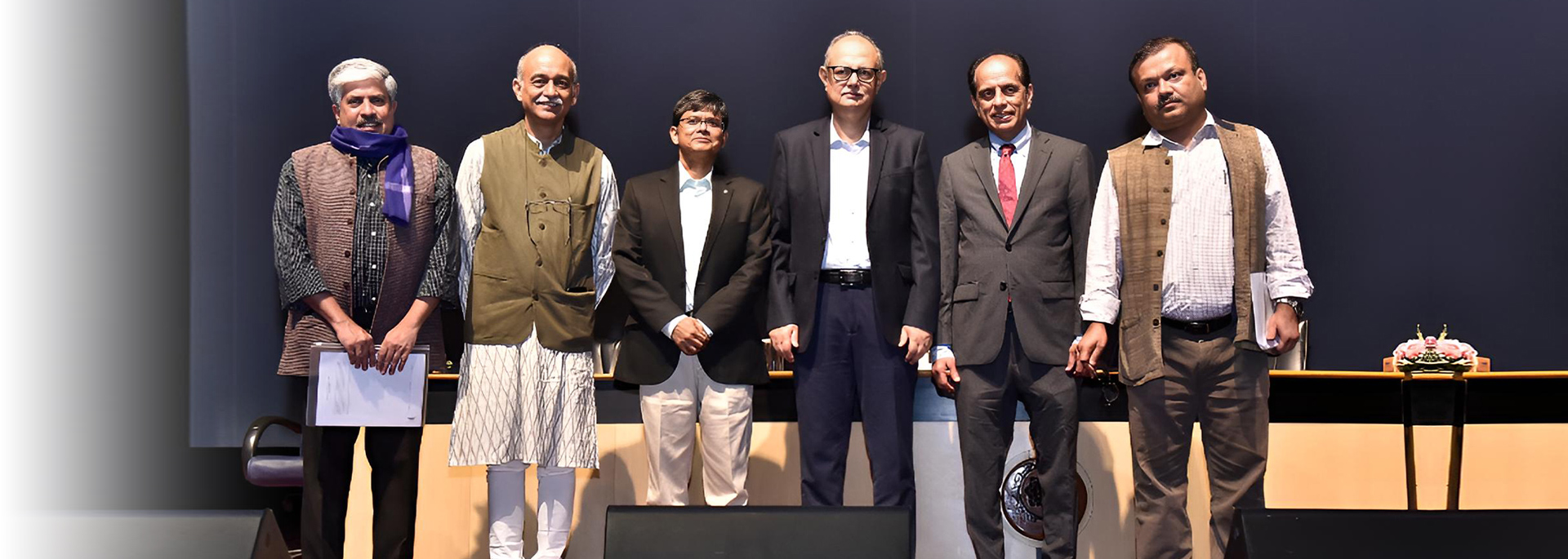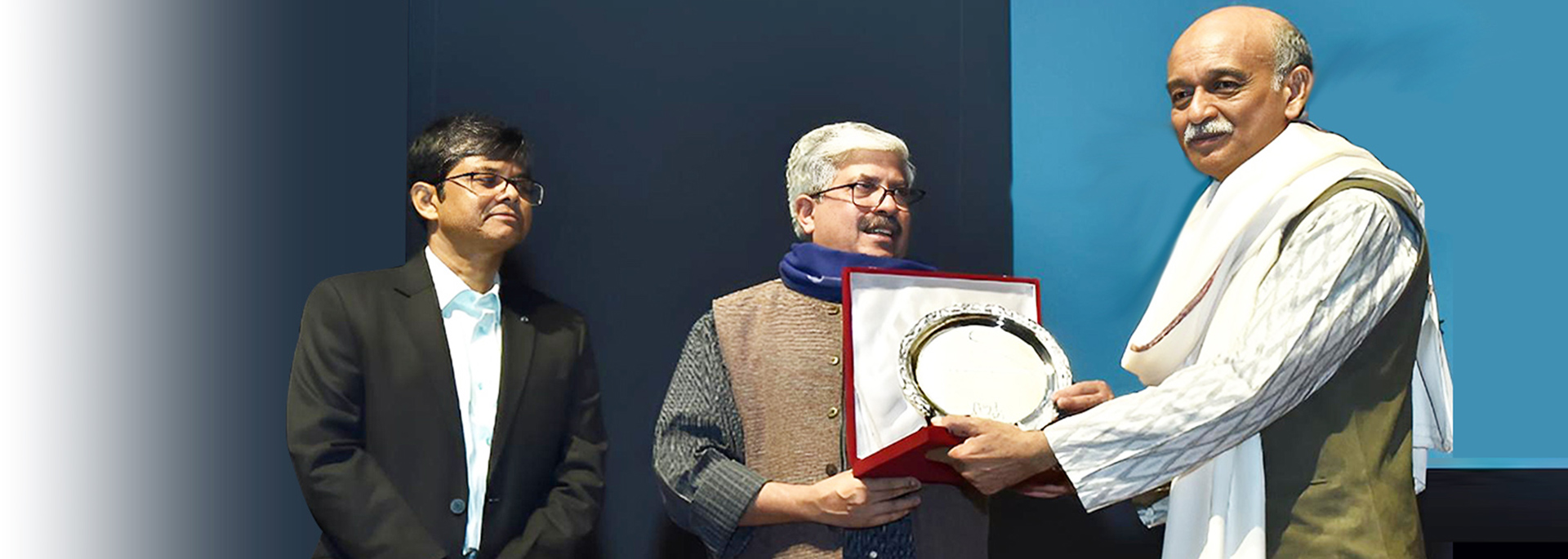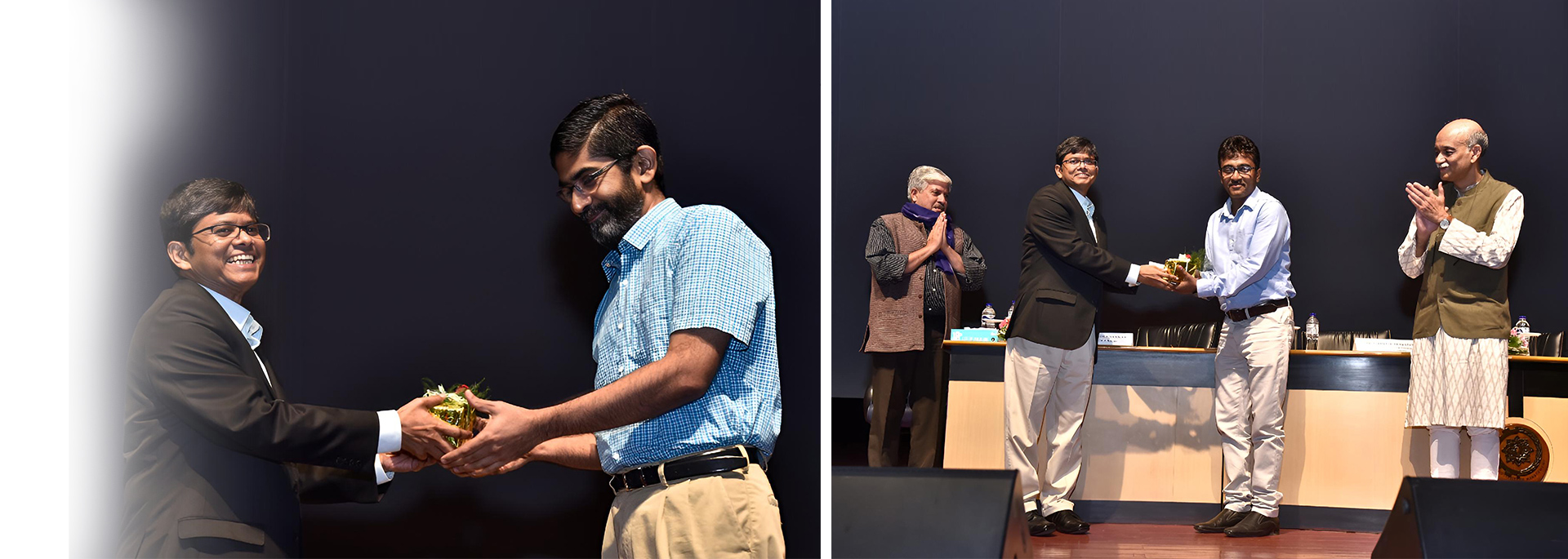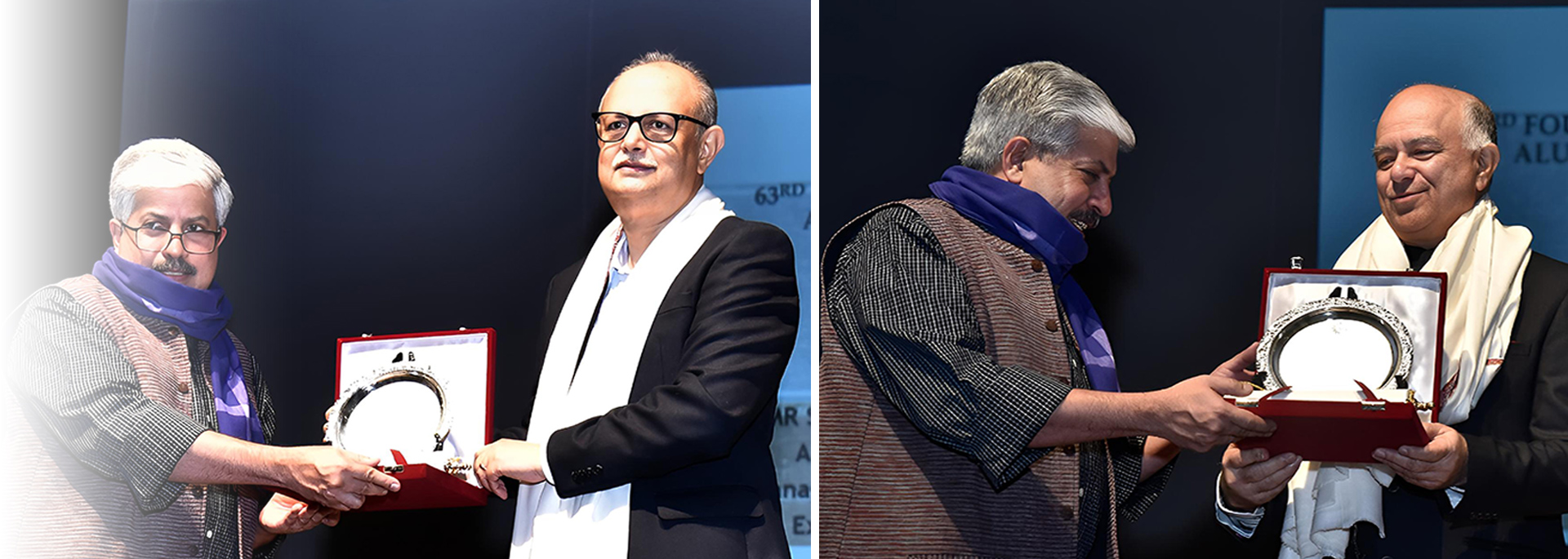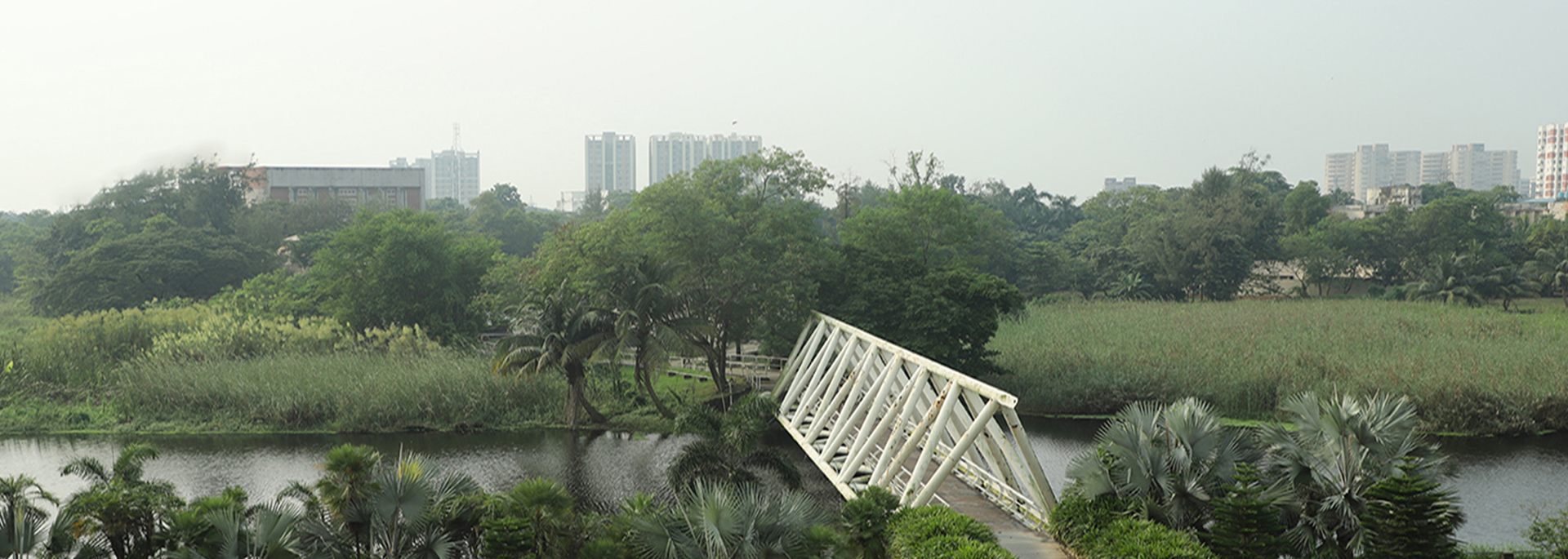The core curriculum of MBA focuses on developing essential skills and knowledge in the areas of economics, organization and behaviour, finance and accounting, management control, marketing, human resource management, information systems and quantitative methods.After successfully completing the first year requirements, the students undertake summer training of up to ten weeks at the managerial level. Students analyse and offer solutions to specific managerial problems under the guidance of a faculty member as well as a manager in the host company.
Second year students structure their studies to suit their aptitude and interest. They usually develop one or two major areas of expertise by selecting courses from the 60 to 80 electives that the Institute typically offers. Students willing to delve deeper into a topic that is not covered by the elective courses can do term papers under faculty supervision.
The method of instruction varies. Case studies, lectures, group and individual exercises, class projects, student presentations, simulation games etc., are used in different courses. Many courses bring in industry experts to integrate classroom learning with industry practice.
A list of term-wise and department-wise list of courses taught in the first year currently is as follows:
Numbers within () represent the credit points.
Summer Project
Students who successfully complete the first year of the program are required to do a Summer Project (of 3 credit points) as a compulsory Pass/Fail Credit course during the summer vacation between Terms III and IV. Summer Interns are attached to firms and complete their project under the guidance of a firm representative.
Course Structure for MBA Second Year
All courses offered in the Second Year are elective courses.
An examination of some important psychological and sociological theories and concepts that help in understanding the forces shaping individual, group and organizational sub-systems; this is done with a view to preparing the students to see how these forces affect the management of business enterprises, both in the private and the public sectors. The major emphasis is on understanding the theories and concepts from an inter-disciplinary point of view. Indications are given as to how an understanding of the basic disciplines, constituting the Behavioural Sciences helps in learning the processes and problems of management and evaluating means of achieving the goals of an enterprise through an effective management of people in the enterprise.Prof. Course Instructor : Rajiv Kumar (CC); Prof. Leena Chatterjee ; Prof. Nimruji Prasad J.& Prof. Abhishek Goel
This is a basic course concerned with the nature of organisations and the process and practice of administration. It is intended to develop the student's ability to diagnose and deal with the many human problems that arise in complex organisations, to provide him with opportunities for practice in administrative decision-making and to make him familiar with managerial work-environment. The course draws upon concepts, findings and approaches of the behavioural sciences and upon developments in organisation theory. It focuses on the characteristics of an enterprise as a socio-technical system on the individual in the organisation, on work group behaviour, on inter-group relations and on problems of role relationships. It deals with considerations relating to the manager's task in solving problems of organisation of work motivation, leadership and change.
Theory of demand; Theory of production and cost: Price determination under different market structures such as competition, monopoly, oligopoly. Introduction to game theory. Uncertainty and asymmetric information. Externalities. Public goods. Course Instructor : Prof. Anindya Sen , Prof. Arijit Sen & Prof. Runa Sarkar
Working of the macroeconomic system: Concepts such as national income and product. Theory of income determination. The economic role of Government: Fiscal policy and Monetary policy and banking system, Economic growth: Unemployment: Inflation; Balance of payments. Course Instructor : Prof. Soumyen Sikdar, Prof. Partha Ray & Prof. Vipul Mathur.
Development and under-development; long-term trends in the Indian economy; poverty, unemployment and the strategy for development: agrarian classes and agricultural development; industrial growth and policy' intersectoral balance; foreign trade sector. Course Instructor : Prof. Parthapratim Pal & Prof. Mritinunjoy Mohanty.
Risk indicates possible variability in outcomes of a process/event around some expected value. Risk Management is the process by which various risk exposures are identified, measured, and controlled. Business risks are those which a firm willingly assumes to create a competitive advantage and add value for its shareholders. Business risks pertain to the product market in which the firm operates and include technological innovations, product design and marketing. Financial risks which relate to possible losses in financial markets such as losses due to interest rate movement, can be optimized carefully so that the firm can concentrate on what it does best to manage exposure to business risks.
List of Possible Topics: Overview of Risk Management; Objectives of Risk Management; Risk Management and Risk Pooling; Decision Making under Risk; Decision Making under Uncertainty; Decision Trees; Simulation; Markov Chains: Stochastic Processes, Chapman Kolmogorov Equation, and n-step Transition Probabilities, Classification of States, Limiting Probabilities, Mean Time Spent in Transient States, Applications; Brownian Motion: Brownian Motion, Brownian Motion with Drift, Geometric Brownian Motion, Pricing Stock Options, The Arbitrage Theorem, The Black-Scholes Option Pricing Formula, Auctions :Auctions with Complete Information, Individual Private Value Auctions, English Auctions, Common Value Auctions, E-Auctions.
Operations Research is a discipline devoted to applying scientific methods to decision making. Operations Researchers utilize mathematical modeling techniques in concert with empirical observation and occasional experimentation to arrive at solutions to management problems in government and industry. This course introduces students to Operations Research through a combination of lectures and computer models using EXCEL/LINDO etc. Model formulation and use of the computer are emphasized in applications to a broad spectrum of management problems. The faculty teaching this course are: Profs. Subrata Mitra, Sanjeet Singh, Sumanta Basu, Preetam Basu, Megha Sharma and Bodhibrata Nag
To equip students with a basic understanding of operations management – the heart of any business.
List of Possible Topics : Production Management: An Overview; Operations Strategy; Production Planning and Inventory Control; Material Requirement Planning; Quality Management; Design of Products and Processes; Forecasting; Maintenance Management and TPM; Contemporary Manufacturing Systems.
Over the last few decades, Information Technology (IT) has penetrated almost every sphere of business activities. IT, which started as a support tool, has slowly become a crucial implement for attaining strategic objectives – be it for improving productivity or quality, for reaching out to customers, for reducing cycle time or for spawning new businesses. However, decision for deploying IT involves large investments, and carries certain risks. As managers, we need to decide what would be the most prudent next investment in IT. For that, we need to assess how IT can be leveraged to gain competitive advantage. We need to know what the recent trends in IT are and how sustainable these are. A comprehension of these issues would help managers make best use of IT in organizations. Course Instructor : Prof. Subir Bhattacharya, Prof. Rahul Roy & Prof. Uttam K Sarkar.
Industry Structure, Generic Strategies, Competitive Advantage, Business Strategy, Corporate Strategy, and Strategy Implementation.
HRM-A systems perspective, recruitment and selection, training and development, performance appraisal, participative management, grievance handling, HR planning, wage policy and administration. IR laws, management of discipline, economics of trade unions, history of Indian IR. economics of collective bargaining, economic reform and labour markets in comparative perspective, strategic human resource management.
This course analyses the interaction between government and business in India in the period between independence in 1947 and the liberalization of the Indian economy in 1991. It aims to provide participants with insights into how governments take decisions on matters that affect the business environment in India. More specifically, it examines the various factors that have influenced, and continue to influence, economic decisions taken by successive Indian governments and the impact that these policies have had on the structure and growth of Indian industry. Course duration is 10 sessions (17.5 contact hours) over 5 weeks (Term I post mid-term session).
Topics Covered: Business and Politics 1947-61; The Industries (Development and Regulation) Act of 1951; Industrial Development Under Licensing; The Decline of Congress Dominance; The Political Environment 1962-1969 and its impact on Economic Policy; The Political Environment, 1969-1977; Business Responses to Increased Regulation; Business and Politics, 1977-84: Liberalization in the Eighties; Economic Crisis of 1991.
Environmental considerations have become central to development policy and management. As a result, there is a growing need for managers, policy makers, and planners to be fully conversant with the environmental dimension of development. The course aims to meet this need by equipping the students with an understanding of the relationship between development problems and environmental issues grounded in different regional contexts. The course is multi-disciplinary in nature, drawing on a wide range of underlying theory and cases to show how the institutional aspects of decision-making, technology, and sustainable development are inextricably interwoven. The lectures and discussions focus on the emerging concerns for environment and development, environment management strategies, management of urban environments, governance of natural resources, and environmental conflicts.
Elements of Indian Law and the judicial system; Law of Contract-formation, vitiating elements, performance and discharge of contract: Law of partnership and sale of goods: Negotiable Instruments: Law of corporations: Company Law including effects of incorporation: Types of companies, Memorandum of Association, Shareholders and Debenture holders, minority protection, winding up: Essential features of Labour laws: Laws of Insurance: Constitutional and Administrative law: Law of Intellectual Property: Consumer Protection Law: Economic Legislation: I (D & R) Act. MRTP Act. FERA.
The course aims at, a basic understanding of the Indian social structure drawing primarily upon sociological researches and the discipline of sociology. The areas covered are Sociological Concepts and approaches: the nature and development of Indian society with emphasis on major social institutions, sources of social cleavage and integration, and processes of social change in contemporary India. Specific attention is given to the social groupings, social stratification [caste, class and strata], power structures, the emergence of modern organizations and issues of identities and interventions.


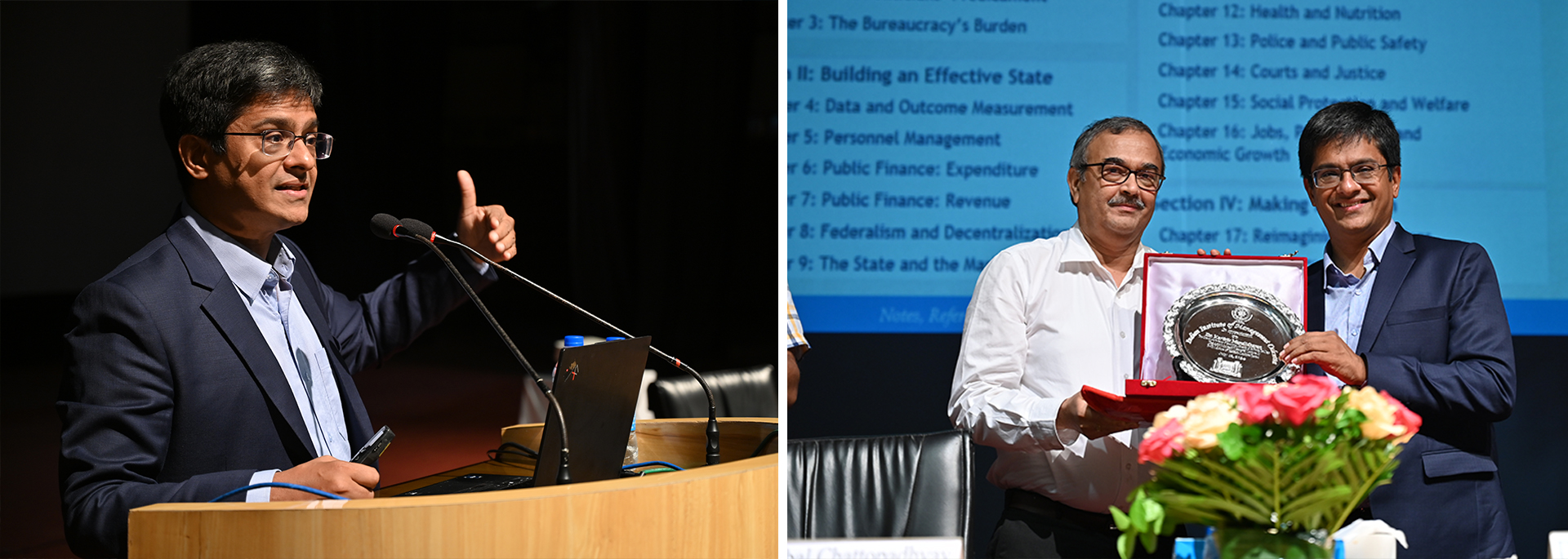
.png)
